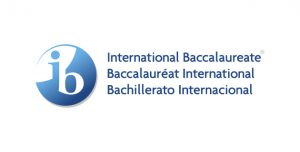
Founded in 1968, the International Baccalaureate® (IB) is a non-profit educational foundation offering four highly respected programmes of international education that develop the intellectual, personal, emotional and social skills needed to live, learn and work in a rapidly globalizing world. Schools must be authorized, by the IB organization, to offer any of the programmes. To learn about the authorization process, visit our Become an IB World School section.
The IB has a hard-earned reputation for high standards of teaching, pedagogical leadership and student achievement. We work with schools, governments and international organizations to develop challenging programmes of international education and rigorous assessment.
The International Baccalaureate® (IB) offers a continuum of international education. The programmes encourage both personal and academic achievement, challenging students to excel in their studies and in their personal development.
In order to teach IB programmes, schools must be authorized. Every school authorized to offer IB programmes is known as an IB World School.
IB Offers 4 Programmes:
Primary Years Programme
The PYP prepares students to become active, caring, lifelong learners who demonstrate respect for themselves and others and have the capacity to participate in the world around them. It focuses on the development of the whole child.
Age range: 3-12
Middle Years Programme
A challenging framework that encourages students to make practical connections between their studies and the real world, the MYP is inclusive by design; students of all interests and academic abilities can benefit from their participation.
Age range: 11-16
Diploma Programme
Research suggests many benefits to choosing the DP. The programme aims to develop students who have excellent breadth and depth of knowledge – students who flourish physically, intellectually, emotionally and ethically.
Age range: 16-19
The International Baccalaureate® (IB) Diploma Programme (DP) curriculum sets out the requirements for study of the DP.
The curriculum is made up of the DP core and six subject groups.
Made up of the three required components, the DP core aims to broaden students’ educational experience and challenge them to apply their knowledge and skills.
The three core elements are:
Theory of knowledge, in which students reflect on the nature of knowledge and on how we know what we claim to know.
The extended essay, which is an independent, self-directed piece of research, finishing with a 4,000-word paper.
Creativity, activity, service, in which students complete a project related to those three concepts.
The six subject groups are:
Studies in language and literature
Language acquisition
Individuals and societies
Sciences.
Mathematics
The arts.
There are different courses within each subject group.
Choosing subjects in the Diploma Programme
Students choose courses from the following subject groups: studies in language and literature; language acquisition; individuals and societies; sciences; mathematics; and the arts.
Students may opt to study an additional sciences, individuals and societies, or languages course, instead of a course in the arts.
Students will take some subjects at higher level (HL) and some at standard level (SL). HL and SL courses differ in scope but are measured according to the same grade descriptors, with students expected to demonstrate a greater body of knowledge, understanding and skills at higher level.
Each student takes at least three (but not more than four) subjects at higher level, and the remaining at standard level.
Standard level subjects take up 150 teaching hours. Higher level comprises 240 teaching hours.
Career-related Programme
The CP is a framework of international education addressing the needs of students engaged in career-related education. It leads to further/higher education apprenticeships or employment.
Age range: 16-19

